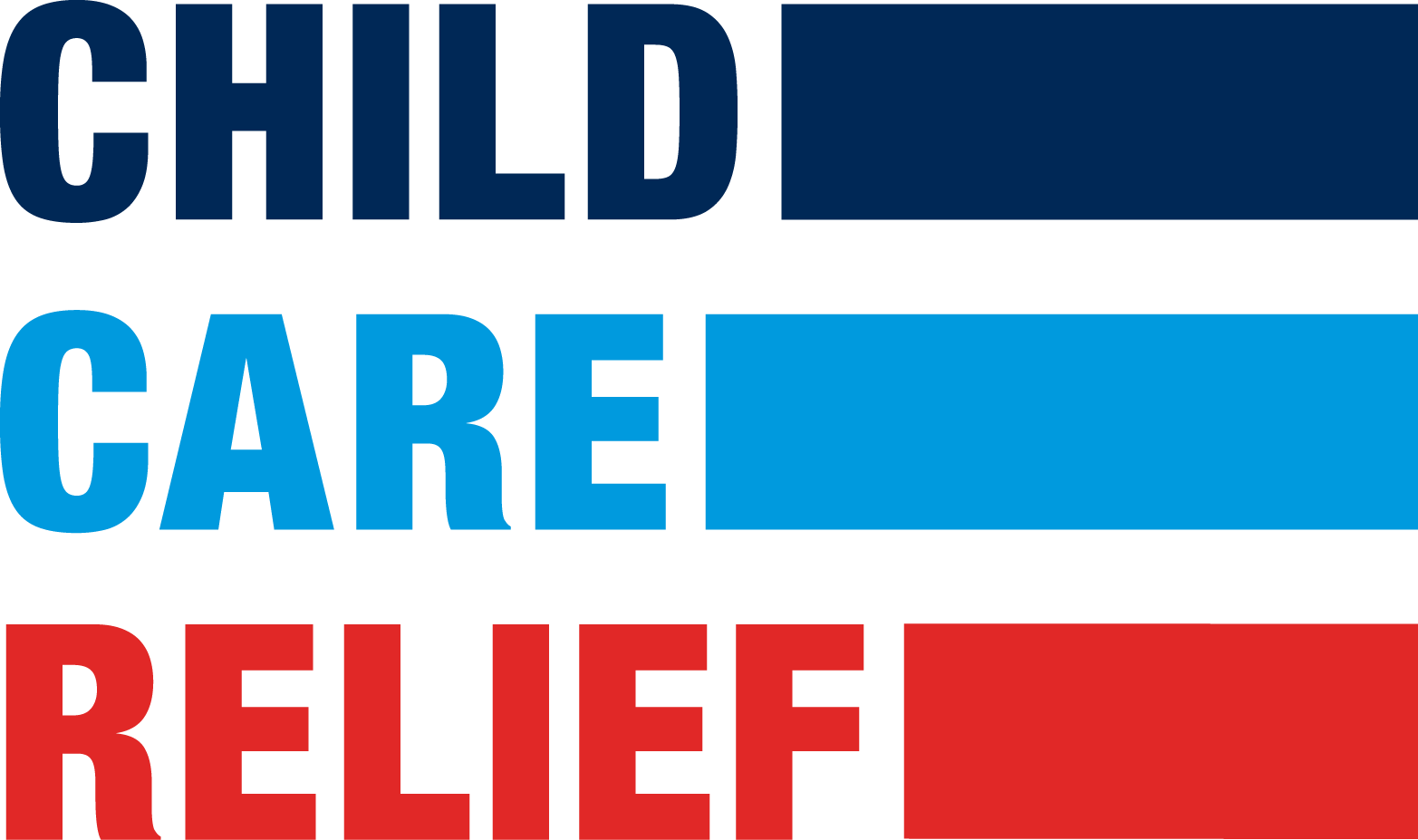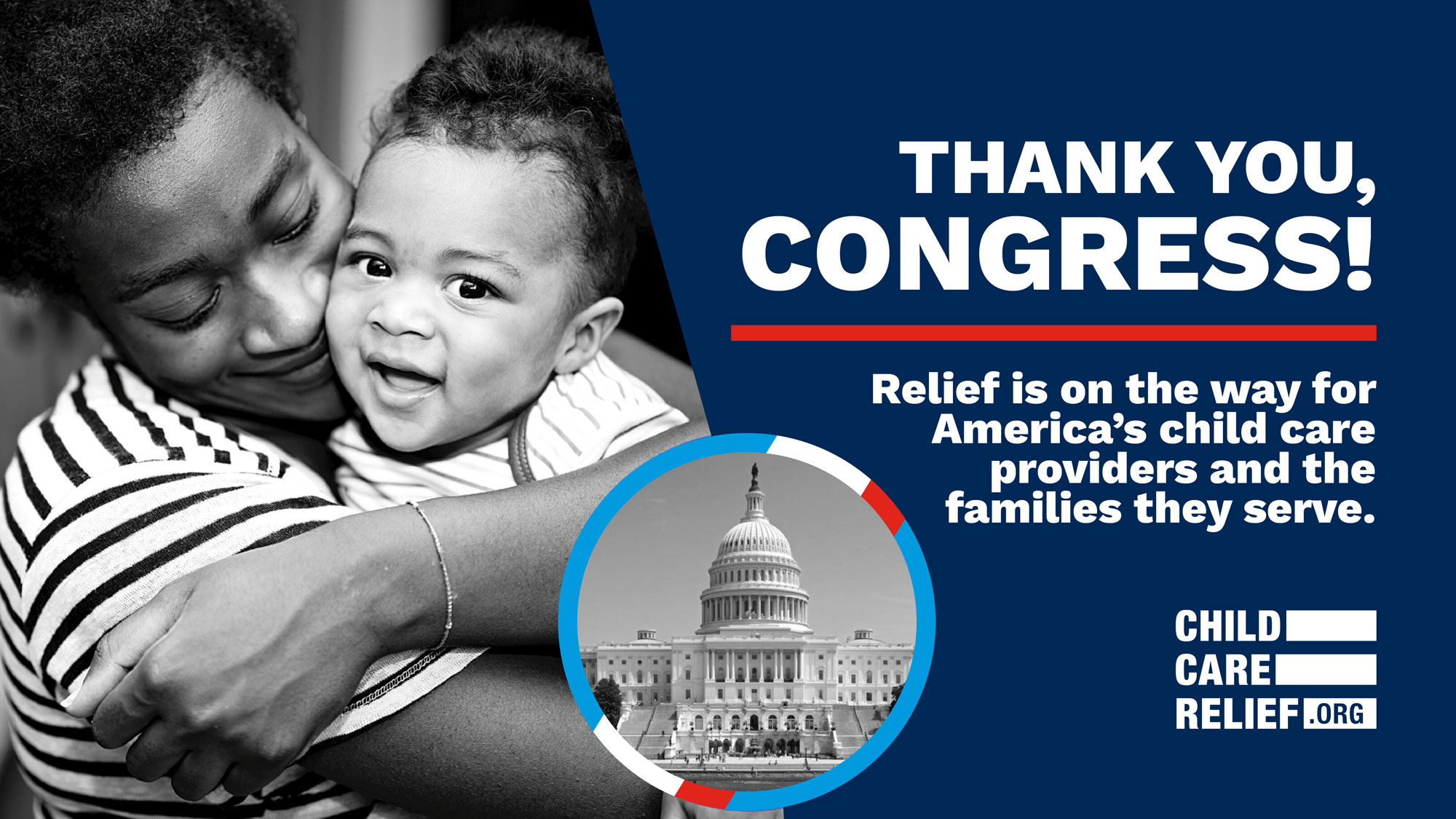
Child Care is the Key to Economic Recovery
America needs child care relief to keep the industry afloat during the nation’s economic recovery from the COVID-19 pandemic. The disastrous economic crisis has hit the child care industry especially hard, causing widespread layoffs and closures as a result of catastrophic drops in enrollment.
The devastating impact of these financial realities cannot be sustained without direct federal investments through a child care stabilization fund that ensures providers can keep their doors open to meet the needs of children and families.The situation varies from state to state, and even from community to community. Here’s a look at recent news coverage and analysis of the nation’s child care crisis.
THE LATEST: COVID-19’s worsening devastation of the child care industry is having a major impact on the recovery — just as the economy begins to reopen, keeping parents (particularly women) from being able to return to work. According to recent reporting from Politico on the rapidly growing unemployment rate in America, women have been more likely to have been laid off, left the labor market, or consider quitting their jobs to manage essential family responsibilities like caring for children.
WHY CHILD CARE NEEDS RELIEF: More from Politico: “Continued shutdowns and the need to implement costly safety and social distancing measures are threatening to run so many child care providers out of business that the country could permanently lose an estimated half of its capacity… Left unaddressed, the issue will affect tens of millions of Americans. More than 325,000 child care workers have already lost their jobs since February. And more than 33 million American families have children under the age of 18.”
SIGNS OF PROGRESS IN CONGRESS: Two House Subcommittees held bipartisan hearings this week on America’s child care challenges. “Child care is exactly the type of smart investment we should be prioritizing as we safely reopen and rebuild America’s economy,” said Rep. Jackie Walorski (R-IN). “There can be no return to normal for our families if children cannot return to child care,” added Rep. Rosa DeLauro (D-CT).
THE STATES: A recent study shows nearly one-quarter of Iowans live in a child care desert, according to WGEM, and the coronavirus has presented providers who have remained open with new challenges. In order to survive the next five months, the Massachusetts child care system needs an estimated $690 million to cover lost tuition due to mandatory closures and pay for the increased cost of new health regulations, according to two recent reports. Texas school districts are reporting that Pre-K enrollment has fallen drastically due to the COVID-19 pandemic, raising concerns that young children will not receive the social, emotional, and cognitive education that lays the groundwork for success in school, college, and the workforce.
STORIES TO READ: Georgia Goldburn, executive director of Hope for New Haven writes about her struggle to continue serving her community as the loans she received from the Paycheck Protection Program and state emergency funds run out. Even in Connecticut, where state leaders took steps to stabilize the child care industry and provide frontline workers access to child care, providers are beginning to close, leaving few options for parents returning to work. Read more here.
IN CASE YOU MISSED IT: ‘What it’s like living in child care deserts’: More than half of U.S. communities don’t have licensed child care options – and that was before the pandemic. Watch this recent moment on MSNBC that highlights the challenges millions of families are facing across the nation and how coronavirus has made it worse.
WHAT WE ARE READING: “It feels like child care is being regarded as a footnote of reopening plans rather than a headline.”: This week, Axios profiled the growing challenge facing communities across the country. With coronavirus cases spiking and no end in sight, schools and day care centers may not fully reopen in the fall, triggering a massive child care crisis for millions of American workers.
